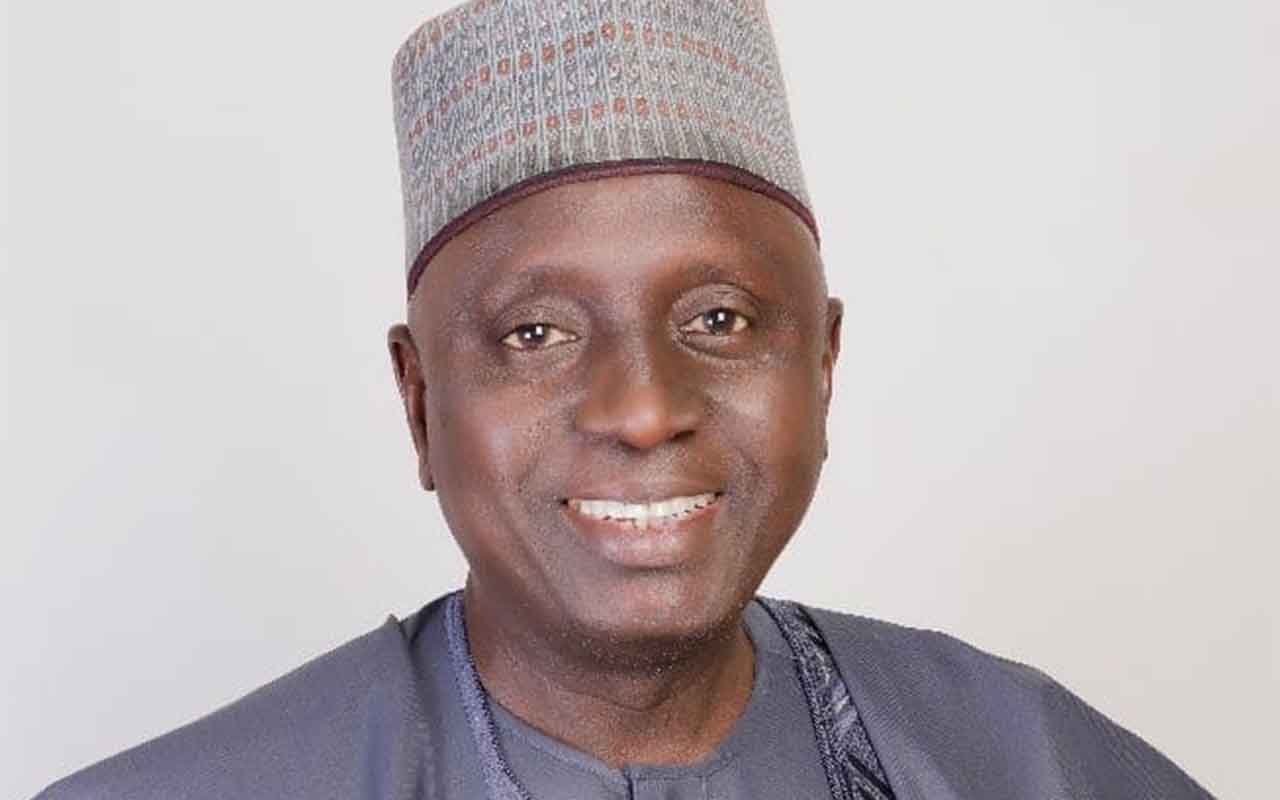The Chairman of the Senate Committee on Health, Senator Ibrahim Oloriegbe, has faulted the new bill seeking to compel Nigeria-trained doctors to practice for a minimum of five years before being granted a full license.
Sponsored by Hon. Ganiyu Johnson, a lawmaker from Lagos, the controversial bill is titled “A bill for an Act to Amend the Medical and Dental Practitioners Act, Cap. M379, Laws of the Federation of Nigeria, 2004, to mandate any Nigeria-trained medical or dental practitioner to practice in Nigeria for a minimum of five before being granted a full license by the council in order to make quality health services available to Nigeria”.
There have been concerns in recent times over the relocation of many healthcare workers in Nigeria to foreign countries — a development that has retrograded the state of the country’s health sector.
In a Saturday statement, Oloriegbe, a health systems expert, said that the bill alone would not address brain drain as envisaged.
Read Also: Datti-Ahmed: SERAP, CJID sue Buhari, others over ‘unlawful N5m fine on Channels TV’
“As the Chairman Senate Committee on Health, a stakeholder in Nigeria’s Health Sector, and a health system specialist, I am of the view that the legislative proposal sponsored by Hon. Ganiyu is not enough as a strategy to address the challenge of brain drain in the health sector.
“This is because the factors responsible for brain drain are multifaceted and the mere denial of full practice license to medical practitioners as contained in the proposal will never resolve and may even aggravate them.
“Besides, it is not only medical doctors that are leaving the country for greener pastures abroad, there are other health workers, as well as professionals in other fields of human endeavor, trained but leaving the country on daily basis for similar purposes, consequently, focusing attention only on the medical doctors is like curing one of many ailments that are threatening the life of a dying patient without finding solutions to the others.”
Oloriegbe added, “In addition, with all due respect, the issues and facts related to granting of practicing license are not understood by the sponsor of the bill, thus, it becomes imperative for me as a stakeholder in the health sector to offer my perspective, this time as a medical practitioner of many years and not particularly as a senator with the privilege of heading the Senate Committee on Health.
“The piece of the proposed legislation at a minimum violates the right to the “Freedom of Movement” (Sec. 41) and “The right to freedom from discrimination” under (Sec. 42) as guaranteed by the Constitution of the Federal Republic of Nigeria (CFRN) 1999, as amended.
“These rights cannot be ordinarily denied by any person or government. Thus, we can’t be seeking legal redress through an illegal procedure.
“A person who is “qualified as a Medical Doctor” cannot be denied a license to practice having been certified qualified, except if he is found wanting in the ethics of the profession. Labor laws will come into place here.
“Furthermore, before the bill can be considered for legislative passage and executives’ approval, the following fundamental issues are important to scrutinize:
“a) When does the 5-year period start, before or after the housemanship?
“b) What sort of license will be awarded to a fully trained doctor instead of a full license to practice under the proposal?
“c) Is there going to be a limit in the doctor’s scope of practice, and to what extent are the limits during the five years waiting period? And we need to establish why we are putting such limits; is it for lack of skills, or political expediency?
“d) What happens after the five years of denial of rights to practice?
“e) Consequently, how will this law advance the quality of clinical services, education, and research in any system, let alone, a crippled one like ours?
“Given the above reasons, it is my considered opinion that resolving the challenge of brain drain in the country’s health sector cannot be achieved through this bill. Rather, we need to address the various factors that make skilled health workers desire to migrate out of Nigeria.
“I, therefore recommend that rather than enacting laws that will curtail the rights of the citizens to free movement and seek better opportunities through legal means, we should advocate for an improved system that will be very attractive and make medical practitioners unwilling to travel abroad to seek better living conditions.
“That is, we have to make our pastures to be greener so that other people’s pastures won’t be tempting to them.”
Oloriegbe recommended that medical students could be obliged to choose between paying the standard market rate for their training or opting for government-subsidized training, noting that quality education in its real sense can’t be free.
He further explained that those who opt for subsidized training after their qualification would in return be compelled to work in Nigeria for a certain time or refund the subsidies, stressing that this is a practice obtainable even in advanced countries such as the UK.
“To achieve the goal of a mandatory work scheme, we can enable a system that will guarantee employment opportunities for medical professionals after their qualification and provide inflation-adjusted living earnings for a few years after graduation on the condition that they stay in Nigeria to practice. Apart from providing attractive remunerations, their work environment and career expectations should also be prioritized. Incorporating both measures should give us satisfactory results.
“Lastly and importantly, we need to improve our health system with sustainable investments to make it conducive for the various health workers to work. We can be assured of better outputs only if what we input is in good condition,” the Senate health committee chairman stated.

